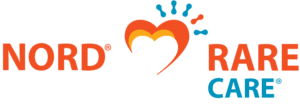Last updated:
10/25/2023
Years published: 1992, 1999, 2007, 2009, 2012, 2015, 2018, 2023
NORD gratefully acknowledges Robert C. Bransfield, MD, DLFAPA, Clinical Associate Professor of Psychiatry at Rutgers—Robert Wood Johnson Medical School and the Hackensack Meridian School of Medicine, for assistance in the preparation of this report.
Kluver-Bucy syndrome is a very rare cerebral neurological disorder associated with damage to both temporal lobes resulting in abnormalities in memory, social and sexual functioning and unusual (idiosyncratic) behaviors.
Major symptoms may include excessive oral tendencies with hyperorality (an urge to put inappropriate objects into the mouth), hypermetamorophosis (a need to touch everything), compulsive eating, hypersexuality (extreme sexual behavior), visual agnosia (difficulty identifying objects), docility or plasticity (easily influenced), lack of normal fear, indifference, memory loss and other emotional changes. When associated with temporal frontal dementia, seizures or traumatic brain injury, there may be additional symptoms.
Kluver-Bucy syndrome is the result of bilateral damage to the temporal lobes of the brain. This may be the result of trauma to the brain, tumors, degenerative brain diseases or some brain infections, most commonly herpes simplex encephalitis (a viral brain infection).
Kluver-Bucy syndrome is a very rare disease that affects males and females equally.
Treatment of Kluver-Bucy syndrome is supportive and psychotropic medications may be effective for some of the associated symptoms.
Information on current clinical trials is posted on the Internet at www.clinicaltrials.gov. All studies receiving U.S. Government funding, and some supported by private industry, are posted on this government web site.
For information about clinical trials being conducted at the NIH Clinical Center in Bethesda, MD, contact the NIH Patient Recruitment Office:
Tollfree: (800) 411-1222
TTY: (866) 411-1010
Email: [email protected]
Some current clinical trials also are posted on the following page on the NORD website:
https://rarediseases.org/for-patients-and-families/information-resources/news-patient-recruitment/
For information about clinical trials sponsored by private sources, contact:
www.centerwatch.com
For information about clinical trials conducted in Europe, contact:
https://www.clinicaltrialsregister.eu/
JOURNAL ARTICLES
Lanska DJ. The Klüver-Bucy Syndrome. Front Neurol Neurosci. 2018;41:77-89. doi: 10.1159/000475721.
Carroll BT, et al. Anatomic basis of Klüver-Bucy syndrome. J NeuropsychiatryClinNeurosci.1999 Winter;11(1):116.
Slaughter J, et al. Selective serotonin reuptake inhibitor treatment of post-traumatic Klüver-Bucy syndrome. Brain Inj.1999;13:59-62.
Hayman LA, et al. Kluver-Bucy syndrome after bilateral selective damage of amygdala and its cortical connections. J Neuropsychiatry ClinNeurosci.1998;10:354-58.
Pradhan S. et al. Kluver-Bucy syndrome in young children. ClinNeurolNeurosurg. 1998;100:254-58.
Goscinski I, et al. The Klüver-Bucy syndrome. J Neurol.1997;41:269-72.
INTERNET
M Das J, Siddiqui W. Kluver-Bucy Syndrome. [Updated 2023 Jun 26]. In: StatPearls [Internet]. Treasure Island (FL): StatPearls Publishing; 2023 Jan-. Available from: https://www.ncbi.nlm.nih.gov/books/NBK544221/ Accessed Oct 25, 2023.
Klüver-Bucy Syndrome. National Institute of Neurological Disorders and Stroke. https://www.ninds.nih.gov/health-information/disorders/kluver-bucy-syndrome#:~:text=What%20is%20Kl%C3%BCver%2DBucy%20syndrome,normal%20fear%20and%20anger%20responses Accessed Oct 25, 2023.

NORD strives to open new assistance programs as funding allows. If we don’t have a program for you now, please continue to check back with us.
NORD and MedicAlert Foundation have teamed up on a new program to provide protection to rare disease patients in emergency situations.
Learn more https://rarediseases.org/patient-assistance-programs/medicalert-assistance-program/Ensuring that patients and caregivers are armed with the tools they need to live their best lives while managing their rare condition is a vital part of NORD’s mission.
Learn more https://rarediseases.org/patient-assistance-programs/rare-disease-educational-support/This first-of-its-kind assistance program is designed for caregivers of a child or adult diagnosed with a rare disorder.
Learn more https://rarediseases.org/patient-assistance-programs/caregiver-respite/The information provided on this page is for informational purposes only. The National Organization for Rare Disorders (NORD) does not endorse the information presented. The content has been gathered in partnership with the MONDO Disease Ontology. Please consult with a healthcare professional for medical advice and treatment.